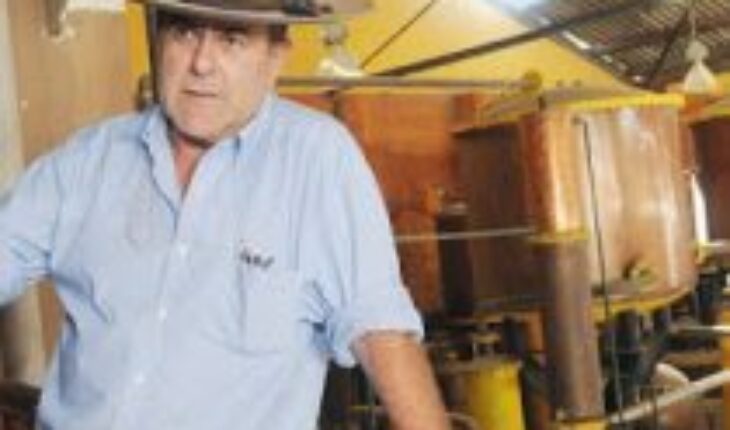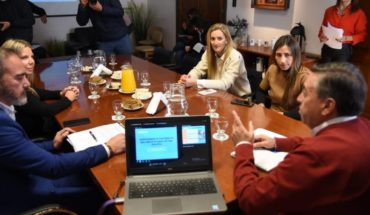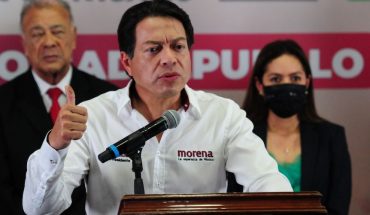Francisco Hernández Solís leaves the presidency of the Association of Pisco Producers, Pisco Chile AG, after five years to give way to the new board that will be headed by Francisco Munizaga.
The new president is currently general manager of Pisquera Fundo Los Nichos, the oldest operating pisquera in Chile, with more than 150 years of history.
But when he left his term, Hernández Solís analyzes what it was like to be in charge of such an important area in our country, after assuming the presidency of the guild in 2016, generating a collaborative work, close to the authorities and pisco producers.
Thanks to this, he managed to unite the entire territory of the Denomination of Origin considering the imprint that pisco has a seal of quality, is recognized as a heritage product of Chile and can be internationalized as the emblematic product of our country in the world.
As part of his outstanding role as a leader, in the international arena, he has also been a member and president of the Council and World Forum of Wine Cooperatives.
The agricultural producer, a member of the Capel Cooperative and a member of a family of recognized pisquera tradition, has always been linked to the industry, even exercising for several periods the position of president of Cooperativa Capel.
His family brand “Luis Hernández” was one of the first to try his luck at international pisco exhibitions, winning a gold medal at the Paris exhibition in 1889.
What were the main achievements or advances of your management?
I attach great importance to the team with which I had to work, a team of top professionals, who despite being very small were able to enter the big leagues of the guild associations of the country.
They began to consider us in the regional governments, the central government, the parliamentary level, which I appreciate. Also in the government all the ministries were very close to us and opened the doors to us when they saw that we were an absolutely serious guild.
Pisco and its contribution
The pisco agribusiness generates a lot of employment and a lot of income for the country and the region. The pisquera activity at the level of specific tax of alcohols is taxed about U$150 million dollars per year, a figure equal to or greater than the resources of the National Regional Development Fund of Atacama and Coquimbo combined.
With these arguments on the table we began to be heard, even the President of the Republic visited us in a surprise meeting we had at the Airport of La Florida in La Serena. He had received information that the guild was having complications since at that time we were being abandoned legally and judicially in the defense we had in Thailand and India, where our budget did not give us more and we had decided to abandon a judicial instance in defense of the Denomination of Origin.
The government intervened and gave us a great boost at the level of the Presidency of the Republic and mainly the Ministry of Agriculture headed at that time by Minister Antonio Walker and the Minister of Foreign Affairs and all the ministries related to this type of problem.
During these five years, did Chile’s pisquero producers make significant progress in making visible as a national emblem and the problems they were facing that were not public knowledge?
Absolutely. We had to compete judicially against the entire Peruvian State where pisco is considered a flagship product, and we as a simple trade association, which through extraordinary quotas managed to maintain a medium defense of something that is the heritage of the country.
With all this noise and this media presence that we had and the interventions of all areas of national politics, -Foreign Affairs, Ministry of Finance and Agriculture, among others-, pisco began to become an emblematic product in Chile and people began to value it. This has led to many producers from the Atacama and Coquimbo regions joining behind this distillate that is a heritage of Chile and absolutely of these regions.
This was added and practically transformed into a regional state policy, highlighting what it means to have a heritage as a 100-year-old denomination of origin. In this I do not want to join only this car, I received the Guild Association with a lot of work started, I only completed it.
“Pisco must be transformed into one of the great distillates of the world”
Among the most important challenges in which progress must be made is the promotion and defense plan, the certification work and what has been developed to value pisco as a heritage value. Which one should be put more emphasis on?
Pisco must be transformed into one of the great distillates of the world, so part of this support that we have had from the State of Chile a large amount will go to promotion and defense in the world of our denomination of origin. Once we manage to enter the big leagues of the markets, pisco will have a worldwide visibility and will transform us into a star product like other great distillates such as tequila, cogñac and others that also have denomination of origin.
Personally, what happens to this period when you leave office?
Those of us who have been working for a long time in roles where we have to represent many people are getting used to the fact that this has a beginning and an end; and I have had to be a leader in the Capel Cooperative for a long time, I was also Mayor so I have held positions of public representation. One gets used to valuing everyone’s interest rather than petty interest that complicates the scenario and the role of many work proposals.
I think that at the end of this period we miss a team that worked like a small clock, because we had a great articulation in all kinds of things, we handled ourselves very well and with people willing to continue in that role for the benefit of all pisco producers.
If you could think of something that did not materialize or that was missing at this time?
When working in a very limited system financially, you always make a little progress in everything, you put a little emphasis on some things; then practically every one of the works that I have mentioned I would all like to continue developing them.
A new administration
Francisco Munizaga, new president of the association of producers, recognizes the advances of the industry in terms of quality, with the entry of new actors and high-end products, “it is a more mature industry with high associativity, which shows advances in the transcendence that pisco has for Chile and the world.”
However, it recognizes that there is still a lack of greater appreciation of the product by Chileans, despite having advanced in the relationship with authority and transversal support both at the regional and central level, and with a positioning of agribusiness in the productive agenda, there is still a way to go for Chileans to value and identify with this product, whose denomination of origin is one of the oldest in the world, and a flag of our country is international markets.
Another of the lines in which Munizaga maintains that progress must continue is in the Certification of the Quality of the DO pisco through a Regulatory Council, and the promotion of exports thanks to the implementation of the Pisco Plan announced in July by the regional and national authorities.
Continuing the work for the defense and promotion of pisco
January 1, 2022 |





